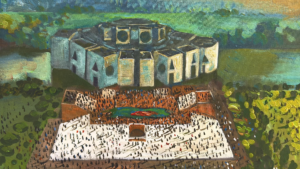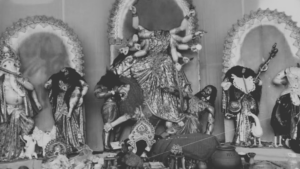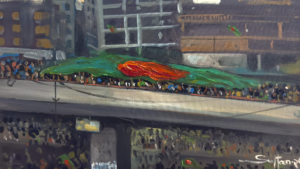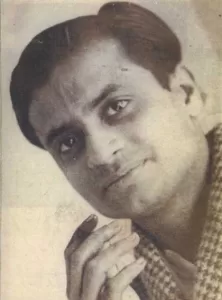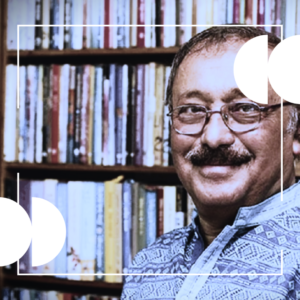
Senior Awami League leader Suranjit Sengupta has proposed that a parliamentary committee headed by BNP chief Khaleda Zia can be appointed “to work on the format of an ‘interim’ government that will oversee the 10th parliamentary election.”
He made that offer in parliament on Monday. Whether this proposal is Mr Sengupta’s own or an AL proposal is yet to be made clear, because the ruling party secretary general stated previously that no talks would take place with the BNP if hartal was enforced, and the PM has remained firm on her: “all party government” formula.
This announcement came in the wake of two developments: the now infamous telephone “conversation” between the Prime Minister Sheikh Hasina and the leader of the opposition Khaleda Zia, and Khaleda Zia’s comment to the trade body leaders that she is open to “unconditional” talks among the party secretary generals.
The proposal has raised questions: is this a breakthrough in the current political impasse or a new twist in the ongoing political saga? As the country endured another three-day hartal with more on the horizon, any positive comments are gladly seized upon.
But many will see this as another trick of the ruling party to create further confusion. There are reasons to be sceptical about the new proposal. This is akin to the TIB proposal laid out in April. The TIB proposed the formation of a committee taking an equal number of members from both the ruling and opposition alliances to select a government for holding a free and fair election.
According to the proposal, “a Parliamentary Consensus Committee will be formed in the 30 days before the incumbent parliament’s tenure expires. The committee will select 10 members and one chief for the polls-time government. The speaker will form the committee following recommendations of political parties.”
It is well to bear in mind that the PM rejected the formula along with other proposals suggested at that time. Prime Minister Sheikh Hasina, addressing Pabna district leaders a day after the TIB floated the idea, said: “These new formulas will only create more complexities … these won’t help strengthen democracy and maintain its uninterrupted march forward.”
However, the situation has changed since then and perhaps the ruling party is willing to negotiate. Notwithstanding potential problems regarding the composition of the proposed parliamentary committee, there are other issues. For example, if the committee suggests a solution that requires changes in the constitution, will the ruling party comply and amend the constitution?
If the committee fails to come to a consensus and the committee chair with minority members send a proposal, will that be considered as a legitimate proposal? These issues cannot be resolved in one statement neither can they be avoided altogether.
But they can be discussed. As the opposition leader has already agreed to have a secretary general level discussion, the new offer can serve as the first step towards a meeting or perhaps as the first agenda item of such a get-together.
Will the BNP seize the opportunity and request the AL to elucidate? I am not very optimistic that the BNP will do so. However, I am of the opinion that the BNP cannot simply reject the offer and stick to its demand for the caretaker government (CTG).
Khaleda Zia’s earlier outline of the CTG has turned out to be a non-starter. As reflected in various opinion polls in past months, a significant majority of citizens feel that a caretaker government is needed to oversee the election.
While the BNP can take comfort in that, it cannot continue to be a mere naysayer. Khaleda Zia’s response to the PM’s offer to join her “for a dinner” or negotiation (depends on how you read the message) was a strategic mistake with serious consequences. The human cost of the ongoing political impasse is increasing by the day.
Similarly, if the ruling party and the PM are behind the new offer, it is incumbent on them to elaborate. A timeframe to form the committee and its modus operandi must be laid out soon. But all must start with a clear statement from the PM that she is behind the proposal. It is known to all, decisions are solely hers.
In one sense, the entire conversation is taking place on “borrowed time.” It is “borrowed time” because by now the EC should have been working on the election schedule and the parliament should have been adjourned (as previously promised by the PM and the ruling party).
But should an agreement be reached among all political parties, the PM can evoke clause 123 (3) (b) of the constitution. It says if the parliament is dissolved before completion of its term (5 years period; January 24, 2014), “election is to be held within 90 days after such dissolution.”
Whether such an agreement can be reached is an open question, but the statement of Mr Sengupta may offer a glimmer of hope. But if this turns out be a trick to put the opposition on the back foot, the victory of the ruling party will not benefit them in the long run. In the meantime the nation will continue to suffer.
First Published in Dhaka Tribune, November 6, 2013
http://www.dhakatribune.com/op-ed/2013/nov/06/glimmer-hope-or-new-twist#sthash.N69Pj9cR.dpuf


